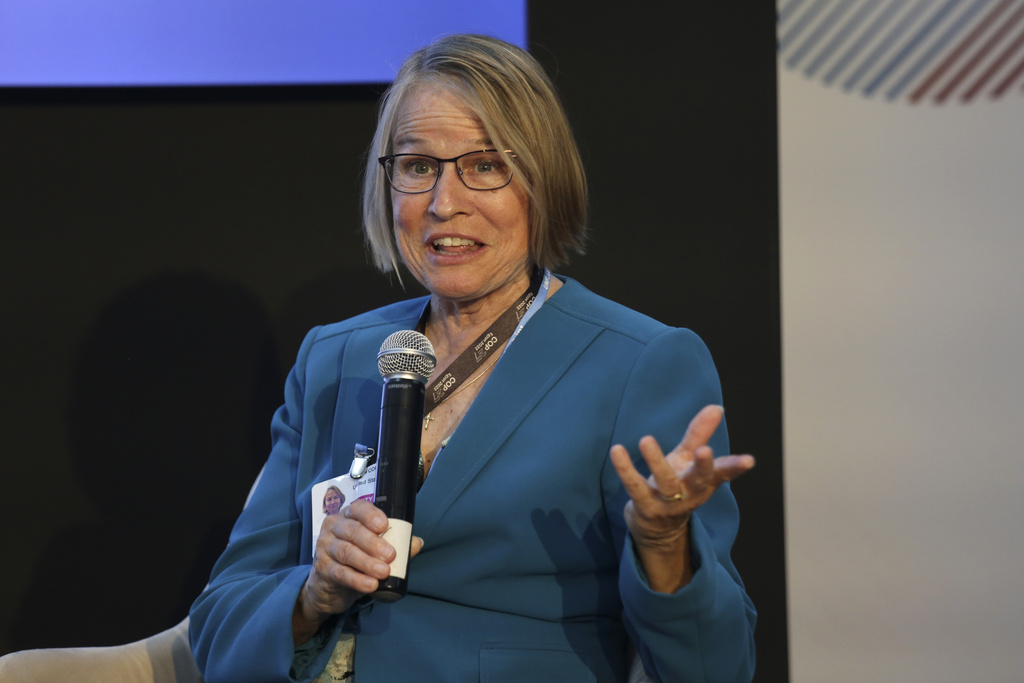Three weeks after Election Day, just one race has yet to be called for the House of Representatives that could determine how much wiggle room Republicans will have to work with when they swear in their majority next year.
The House started off the week with three outstanding House races: two in California and one in Iowa. All three were deadlocked in the tightest of margins, with the widest lead at just 800 votes.
As Wednesday drew to a close, the Associated Press called two races in favor of Rep. Mariannette Miller-Meeks (R-IA) in Iowa’s 1st Congressional District and Democratic candidate Derek Tran, who unseated GOP incumbent Rep. Michelle Steel (R-CA) in California’s 45th Congressional District.
MEET THE NEW CONGRESS: THE HOUSE AND SENATE FRESHMEN ELECTED TO SERVE NEXT YEAR

Although Meeks’s race was just called on Wednesday, the incumbent Republican declared victory late on election night and GOP leaders were quick to celebrate her win. When the race was called, Miller-Meeks led Democratic challenger Christina Bohannan by just under 800 votes.
Miller-Meeks is no stranger to tight races, winning her first election in 2020 by just six votes. She later increased that margin of victory to defeat Bohannan by nearly 20,000 votes in 2022.
But the results this year took longer to process after Bohannan requested a recount, putting election workers through the strenuous process of verifying and tabulating ballots a second time.
California is a bit more nuanced. The state has a slew of election laws that delay its results from being certified, especially when those races are already deemed too close to call.
Tran also declared victory in the race earlier this week despite the district not yet being called by the Associated Press. Steel then seemed to concede her loss in a statement on Wednesday, although she did not refer to Tran by name.
“I owe a debt of gratitude to my supporters, my staff, my family, my daughters and especially my husband, Shawn, for standing by me through endless campaigns,” Steel wrote. “To my volunteers, we would never have made it this far without your tireless efforts. And, to the voters, thank you. I will never stop fighting for you.”
Now only one race remains uncalled in the Golden State: California’s 13th Congressional District, held by Rep. John Duarte (R-CA). Under the current count, the Republican incumbent is narrowly trailing Democrat Adam Gray, who lost to Duarte in 2022 by just 564 votes.
The current margin between the two is 182 votes.

Both Duarte’s and Steel’s districts were considered two of the most competitive races of the 2024 cycle and were both rated as toss-ups by the nonpartisan Cook Political Report.
California is one of just eight states in the country that sends mail-in ballots to all registered voters, which complicates the system by which they are processed. Mail-in ballots take longer to process as election officials must verify signatures, check for duplicate ballots, and occasionally resend ballots that have been damaged or improperly submitted.
Additionally, California accepts postmarked ballots for a week after Election Day, which lengthens the ballot-counting process.
Vote certification then tends to drag on as California allows for ballot curing up until Dec. 1, meaning election officials can reach out to voters who made mistakes on their ballots such as forgetting a signature or using an incorrect envelope.
As a result, it could take a few more days before Duarte’s race is called, and the slim margins have shifted between both candidates. If Democrats manage to flip the seat in their favor, that could have a major impact on how Republicans navigate the House next year.
Although it will not shift the balance of power in the lower chamber, it could make things more difficult for House Speaker Mike Johnson (R-LA) to wrangle his conference.
If those numbers hold, Republicans will have a 220-215 majority — one seat fewer than the margin they worked with over the last year.
CLICK HERE TO READ MORE FROM THE WASHINGTON EXAMINER
However, those numbers will not hold for long. Republicans are expected to start the year with at least three vacancies in the seats held by former Rep. Matt Gaetz, who resigned earlier this month, and Reps. Elise Stefanik (R-NY) and Mike Waltz (R-FL), who will join the Trump administration.
Those vacancies would leave the House makeup at 217-215, giving Republicans only a one-seat majority — raising concerns among members about how much of President-elect Donald Trump’s agenda they will be able to accomplish in the first 100 days. It also puts added pressure on Johnson to lock up every single GOP vote for the Jan. 3, 2025, floor vote for House speaker.
